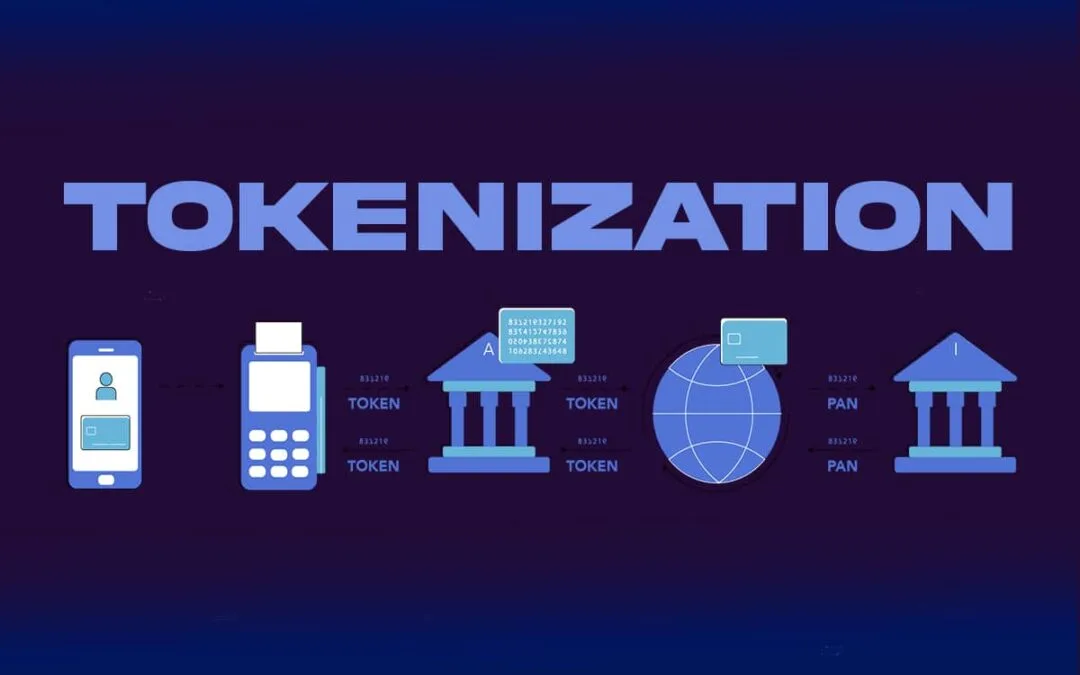What’s The Potential Of Tokenization In Fintech Investment?
Although it is not a widespread and adapted financial trend today, tokenization will be a critical issue in the near future with the encouragement of large-scale companies. Tokenization is converting traditional asset types into digital asset types. This technology will increase further in the near future with greater adoption of digital assets or blockchain technology.
Thanks to tokenization, it becomes easier for investors to create more diversified asset portfolios. For example, while investment portfolios created in fiat currencies such as Dollars or Euros are more limited with traditional banking methods, the increasing asset types with the introduction of tokenization into the financial universe enable the development of more profitable and more successful investment projects in terms of risk tolerance.
In this way, tokenization will be a game changer not only for lucrative investment projects but also for fintech solutions. It is impossible for investments in the field of Fintech not to be affected by the tokenization process. Since fintech companies aim to make financial products or services of higher quality by using financial technologies, it is unthinkable for them to be independent of tokens as an investment material.

How Does Tokenization Transform Traditional Investment Assets?
As the number of fintech efforts in the field of tokenization increases, there will be dramatic changes in traditional investment assets. Thanks to tokenization, traditional asset types are transformed into digital assets with blockchain technologies and it becomes possible to create a new, more colorful and creative financial world.
As an example, we can talk about real estate stocks. Real estate, one of the traditional investment models, can be converted into digital asset types with Tokenization technology. You may have heard that land sales have been made through virtual maps in recent years. NFTs, one of the most famous materials for tokenization technology, have already become one of the popular types of digital assets.
In traditional banking ecosystems, real estate securities cannot be exchanged quickly and sales processes are costly and tiring. However, thanks to Tokenization technology, these securities, which have become a type of digital asset, can be exchanged online in seconds and can be inspiration for new commercial projects.
What Are The Legal And Regulatory Considerations For Asset Tokenization?
Although Tokenization and other blockchain technologies are very popular today, compliance concerns regarding legal regulations still continue. Legal regulations for tokenization are quite inadequate and need to be updated. Both online banking platforms and governments need to determine the legal framework of this technology and propose regulations in this regard.
Many countries have different regulations regarding tokenization. While there are countries that accept it as a completely illegal process, there are also states that allow it to be completely flexible and free. Depending on which exchange or market you are on, you may be subject to different regulations. At this point, fintech companies may be advised to develop Tokenization products or services in compliance with the regulations.
Today, even in very developed countries, Tokenization has not been officially recognized and legal regulations have not been prepared in this field. However, in the near future, legal regulations regarding the spread of blockchain technology will be presented, albeit late.
How Do Security Tokens Differ From Utility Tokens In Investment?
Tokenization technology has created different types of tokens. Security tokens are simply types of tokens that represent financial assets and are known to be used for investment purposes. Utility tokens, on the other hand, are generally offered by platforms to receive certain services and the majority are not used as investment materials.
For this reason, investors who want to develop innovative investment strategies by evaluating online banking opportunities with tokens should turn to security tokens.
Investors who accelerate their adaptation with tokenization technologies and have more knowledge and experience in this field can develop more profitable investment strategies. For example, those who choose utility tokens instead of security tokens in an investment portfolio will develop a wrong investment strategy.
What Are Some Use Cases Of Tokenization Beyond Real Estate And Stocks?

Tokenization is an innovative technology used not only in traditional finance but also in other markets. I should remind you that there are also popular uses other than real estate and stocks. For example, NFTs, which are popular Tokenization products of recent years, are an example of Tokenization as works of art. Artworks that go through the tokenization process are digitally converted into tokens and become a commercial form.
Digital works of art, securities, texts, images, and sometimes even movies, passed through the tokenization process, are now transformed into a tradable asset type. This turns these asset types into assets that can be bought, sold and exchanged. It is possible to develop long and short-term investment strategies with these assets.
Unlike Real Estate and stocks, even audio files can now go through the Tokenization process. Artists who own this audio or movie file can tokenize these files as a commercial asset.
How Can Investors Access Tokenized Assets And Investment Opportunities?
While popular Tokenization products such as NFT are much more easily accessible, it may be necessary to propose a roadmap to access other types of tokens. Investors can use tokens as investment strategies by registering to platforms where they can trade tokens through cryptocurrencies and creating digital wallets.
The number of these platforms has increased greatly in recent years. Investors should register on these platforms to develop investment strategies with various asset classes and commercial projects with digital tokens. They can trade with these types of tokens using cryptocurrencies through these platforms.
In recent years, not only tokens in which digital artworks are transformed into NFT form to be subjected to the tokenization process, but also different types of tokens such as real estate bonds have become popular.
Today, many investors develop investment strategies with various real estate tokens by purchasing different lands through digital maps. In the near future, NFTs may become an even more popular investment tool for artists to permanently solve issues such as copyright and prove their uniqueness.
See you in the next post,
Anil UZUN
